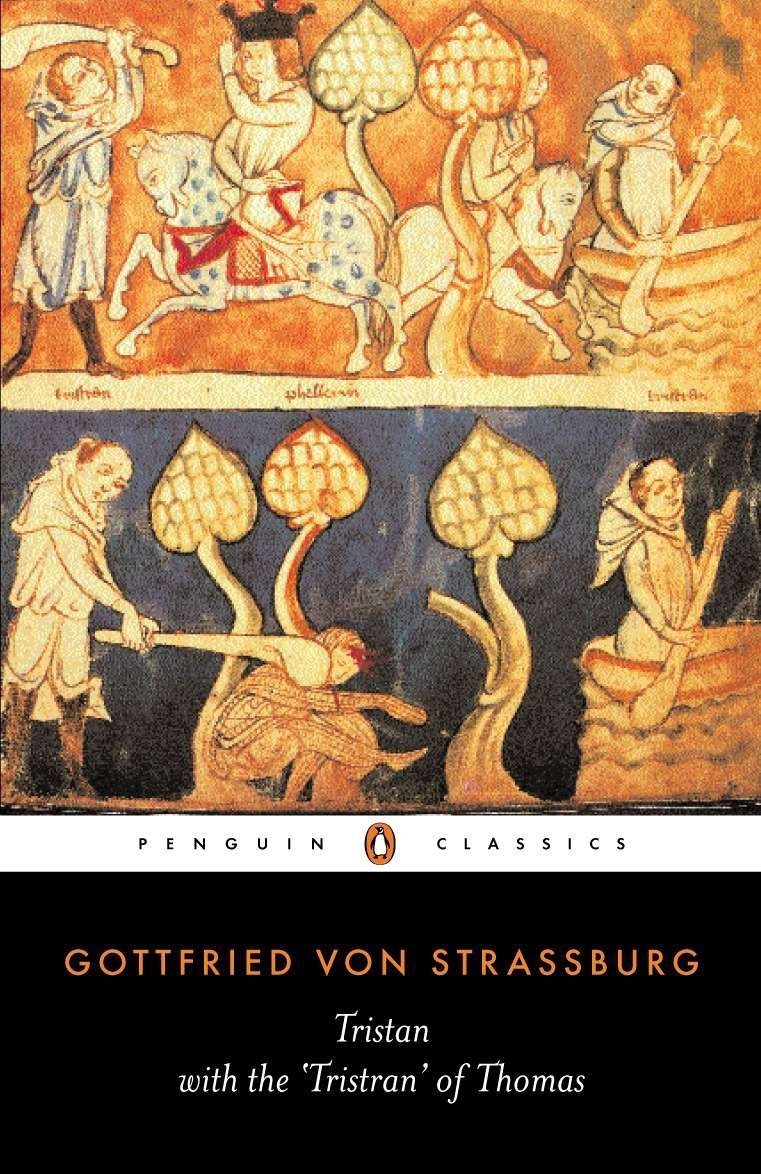What do you think?
Rate this book


384 pages, Paperback
First published January 1, 1210
„Tiur unde wert ist mir der man, der guot und übel betrahten kan, der mich und iegelichen man nach sinem werde erkennen kan.“
“That man is dear and precious to me who can judge of good and bad and know me and all men at our true worth.”
„Der werlde und diseme lebene enkumt min rede niht ebene: ir leben uni minez zweient sich. ein ander werlt die meine ich, diu samet in eime herzen treit ir süeze sur, ir liebez leit, ir liebez leben, ir leiden tot, ir lieben tot, ir leidez leben: dem lebene si min leben ergeben, der werlt wil ich gewerldet wesen, mit ir verderben oder genesen.“
“I have another world in mind which together in one heart bears its bitter-sweet, its dear sorrow, its heart’s joy, its love’s pain, its dear life, its sorrowful death, its dear death, its sorrowful life. To this life let my life be given, of this world let me be part, to be damned or saved with it.”
„Isôt was sin liep und sin leit, jâ Isôt, sin beworrenheit, diu tete im wol, diu tete im wê. Sô ime Isôt sin herze ie mê indem namen Isôte brach, sô er Isôte ie gerner sach.“
Isolde was his life and his sorrow, yes, Isolde his bewilderment, which did him well, and did him harm. … (my partial translation, couldn’t find it in the book)
“He that never had sorrow of love never had joy of it either! In love, joy and sorrow ever went hand in hand!
This is bread to all noble hearts. With this their death lives on. We read their life, we read their death, and to us it is sweet as bread. Their life, their death are our bread. Thus lives their life, thus lives their death. Thus they live still and yet are dead, and their death is the bread of the living. And whoever now desires to be told of their life, their death, their joy, their sorrow, let him lend me his heart and ears – he shall find all that he desires!”
‘Then my advice is that nobody should show him any untowardness till we have discovered his intentions,’ said Brangane. ‘They may well be good and tend to the honour of you both. One should turn one’s coat according to the wind.
the prudent Queen, was brewing in a vial a love-drink so subtly devised and prepared, and endowed with such powers, that with whomever any man drank it he had to love her above all things, whether he wished it or no, and she love him alone. They would share one death and one life, one sorrow and one joy.
“And now it happened, as it was meant to happen and as an equitable fate would have it, that Isolde, the young Princess, was the first to set eyes on her life and her death, her joy, her sorrow.”
Now when the maid and the man, Isolde and Tristan, had drunk the draught, in an instant that arch-disturber of tranquillity was there, Love, waylayer of all hearts, and she had stolen in! Before they were aware of it she had planted her victorious standard in their two hearts and bowed them beneath her yoke. They who were two and divided now became one and united. No longer were they at variance: Isolde’s hatred was gone. Love, the reconciler, had purged their hearts of enmity, and so joined them in affection that each was to the other as limpid as a mirror. They shared a single heart. Her anguish was his pain: his pain her anguish. The two were one both in joy and in sorrow, yet they hid their feelings from each other. This was from doubt and shame. She was ashamed, as he was. She went in doubt of him, as he of her. However blindly the craving in their hearts was centred on one desire, their anxiety was how to begin. This masked their desire from each other.”
“He was harassed by the doubt and suspicion which he had and could not fail to have. He deeply suspected his darling Isolde; he had doubts about Tristan, in whom he could find no sign either of deceit or of treachery. His friend Tristan, his joy Isolde – these two were his chief affliction. They pressed sorely on him, heart and soul. He suspected both her and him, and had doubts about them both.”
“May God be my witness when I say it – may I never be rid of my sins by any other test than the measure of my affection for you! For I declare before God that I never conceived a liking for any man but him who had my maidenhead, and that all others are barred from my heart, now and for ever.” (a misdirection if ever there was one!)
“For (to take one’s words from their own lips) the ladies have no greater harm or guile or duplicity in them of any description than that they can weep for no reason at all, as often as they please. Isolde wept copiously.”
“He saved his life for the sake of the woman, and his life was poisoned with that woman alone. No other living thing was death to his life and soul but his best life, Isolde.”